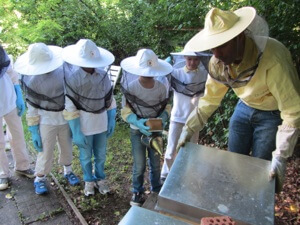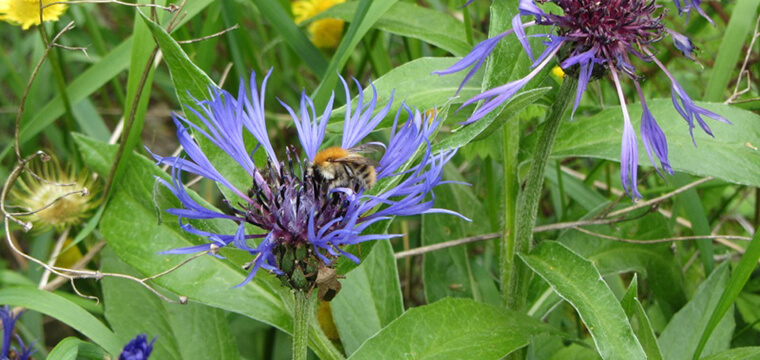 Bee extinction
Bee extinction
counteracted with beehives
Scientists have found out that bees play a crucial role in our ecosystem and consequently also for our food chains. This spring the bees were all over in the media in Europe. The reason for this sudden attention was a relativly high level of bee mortality. The European agency for food security found out that this sudden decline in populations was due to the intensified use of pesticides. The EU commission reacted and banned certain pesticides. The ban is planned to become effective from January 2014 on, however major companies such as Bayer and BASF, who happen to produce the respective pesticides, have already gone to court against the ban.
Necessity
Bee populations are in decline
Activity
Install beehives and settle colonies
Countable effort
Number of colonies that have been established; number of children who have participated in training events
Result
Number of bee colonies in the following year (indicating a recovery of the stock)
Systemic effect
Protection of wild and honey bees. Contribute to a positive attitude of the urban population towards bees
Background
80% of our domestic crops and wild plants and about one-third of everything we eat depends on pollination. Bees also play an important role as pollinators of flowers, herbs and shrubs. Only when plants are pollinated, there are enough seeds and berries so that birds can find enough food. Thus ees contribute significantly to the conservation of biodiversity, which is why the high mortality rates in recent years have become an alarming environmental issue.
Beyond the use of pesticides, there are many more reasons that have caused the rising bee mortality levels in recent years. The destruction of habitats, introduced diseases and parasites and monocultures. However, the use of pesticides and poisons is the most important element. As no toxic pesticides are used in the city and many plants are blooming, bees will find healthier food over a longer period of time here than their counterparts in the country. Frankfurt could become a haven for bees and sustainable urban beekeeping could deliver an important component in maintaining biodiversity in urban areas.
The good deed
Beehives are located in Frankfurt am Main. Through the installation of the beehives there are additional bee colonies and in the long run the populations can recover from their recent decline.
Challenge
Sustainability has to be made tangible and understandable. Many people from urban areas are not frequently in touch with nature. Some people even think bees are dangerous and do not see how important they are for the preservation of the environment. This is a central challenge for the urban settlement of bees.

AboutGermany
Berlin
Capital
80,523,700 (2012)
Number of inhabitants
41,513
Gross domestic product per capita per year
5
Human Development Index
Germany is the world leader in per capita consumption of honey
About the organization and further information
Association
FINE - Frankfurt Institute for Sustainable Development e.V. - Project bee saviour
Transparent civil society initiative Awards: German Commission for UNESCO: Official Project 2012/2013 of the UN Decade "Education for Sustainable Development" Award for Civic Engagement and Focus online award "The ideal place." Hessen state champion in 2012.




